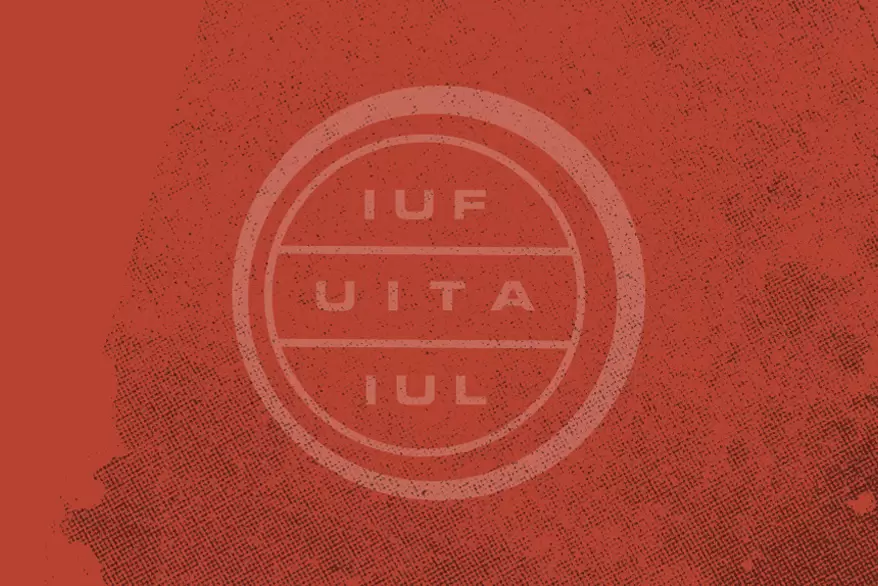World Food Day, held every year on October 16, marks the establishment of the UN Food and Agriculture Organization and highlights the crisis of food insecurity around the world. The UN’s last report confirms that through the COVID-19 pandemic “as many as 828 million people were affected by hunger in 2021 – 46 million people more from a year earlier and 150 million more from 2019.”
As we publish this piece today, hundreds of thousands of people in Gaza are experiencing hunger as war once again grips the Middle East. From Haiti to West Africa to Ukraine and beyond, the crisis of food insecurity is spreading and accelerating, with the increase in war and conflicts pushing many millions more into hunger.
Voices of Afghan Women in the Food System
To mark this year’s World Food Day, the IUF is focusing on the food crisis in Afghanistan where the Taliban’s suppression of the right of women to work and the right to education is deepening food insecurity and pushing the country into an even greater crisis.
The IUF’s Asia/Pacific region, working in conjunction with the courageous women reporters of the The Afghan Times, has produced a report revealing the extreme hardship faced by women workers in Afghanistan, especially women working in the food system.
This report, “Voices of Afghan Women in the Food System: Struggles, Sacrifices, and Strength,” shows the challenges Afghan women have faced since the Taliban’s takeover in August 2021. Conversations with over 70 current or former women workers in the food sector reveal that over a quarter are unable to continue working due to the restrictions imposed on women’s work by the Taliban.
Highlights from the report include:
- Exclusion from Public Life: Afghan women have faced increasing exclusion from public life and society, including the closure of girls’ secondary schools and universities, restrictions on female aid workers, and limitations on public spaces for women.
- Food Insecurity: Since August 2022, 90% of Afghan families cannot afford enough food, with nearly 20 million Afghans uncertain about their next meal and six million teetering on the brink of famine. Moderate acute malnutrition has reached its highest recorded levels.
- Impact on Women in the Food Sector: Many women who worked in the food sector have been unable to continue their employment due to Taliban restrictions, leading to a 25% drop in female employment in this sector.
- Education Crisis: Afghan young women aged 12 and above have faced barriers to education, with 1.1 million denied access to formal education. The suspension of university education for women affected over 100,000 female students.
- Interest in Agriculture: Afghan female students showed a keen interest in faculties related to agriculture and food. However, the Taliban’s restrictions disrupted their studies.
- Workplace Challenges: The Taliban’s rule has drastically reduced opportunities for women in the workforce. Those who still have jobs often face restrictive conditions, working remotely and in isolation from colleagues and clients.
- Impact on Livelihoods: The loss of employment has had profound consequences, affecting not only women individually but also their communities and the nation’s economy.
The IUF is committed to supporting the struggle to restore the rights and freedom of women and girls in Afghanistan and to achieve economic and social justice for women.
